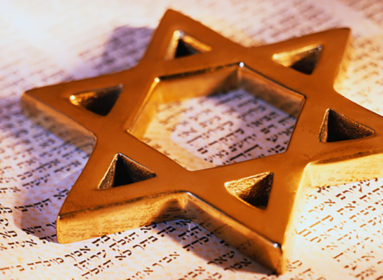
By Shlomo Riskin
“Not with you alone do I establish this covenant and this oath, but with those who are here with us standing today before the Lord our God and with those who are not here with us today.” (Deuteronomy 29:13-14)
The Syrian refugee crisis has prompted public debate worldwide, especially in the U.S. presidential campaign, over the issue of immigration. Should a nation’s top priority be to meet the humanitarian needs of people attempting to flee a war zone? Or should it be to emphasize national security concerns stemming from the terroristic affiliations of a portion of those seeking refuge?
Given that most of the people whose fate hangs in the balance are Muslims, the critical question underlying this debate is, what is the nature of Islam? Are we speaking of a religion of prayer, charity, and belief in one God? Or are we dealing with a cult of death, conquest and jihad? The fact that both of these definitions contain an element of truth is the source of our dilemma. Islam is at war with itself, as Muslims on both sides of these two irreconcilable aspects of the religion’s identity vie for supremacy. And, unfortunately, institutional Islam – Wahhabism, Sunni, Shia, and ISIS – believes strongly in jihad and world conquest.
Does Judaism have a role to play in this debate? The answer to this question will explain several important questions regarding this week’s Biblical portion, and, more broadly, will teach a critical lesson about our moral responsibilities to the world.
The covenant referenced in this week’s parsha is usually read on the Sabbath prior to Rosh Hashanah (Talmud, Megilla 31b). To which covenant does the Torah refer? To whom does God refer when He includes in this covenant “those who are not here with us today”? And what is the connection between this covenant and Rosh Hashanah?
This covenant, in contrast to the two prior covenants (at Sinai and Arvot Moab), features the writing of the universal laws of morality on 12 stones (Talmud, Sota 35b), to be translated in all 70 languages of the world (ibid, 32a), and to be erected at the points from which one enters and leaves Israel. For what reason would the Bible have its laws translated into all 70 languages, if not to teach this morality to the world precisely in the place from which foreigners would travel?
Israel must bear God’s message of morality and peace to the world and God, in turn, will guarantee Israel’s eternity. It is our task as a people to educate the world towards recognition of a God of morality, love, and peace. This is the content of the Third Covenant.
Everyone need not become Jewish or worship God in the way we do. But everyone must be moral and ethical, and must not violate any other innocent human being, if the world is to endure. In the words of the prophet Micah (4:5), “Let all the peoples walk each one in the name of its god, but we will walk in the name of the Lord our God for ever and ever.” We believe in moral absolutism and ritual pluralism!
Regrettably, this is not the belief of institutional Islam today (see Bernard Lewis’ Islam: The Religion and the People), which divides the world between “Dar al-Islam” (states controlled by Muslims) and “Dar al-Harb” (states controlled by non-Muslims, to be conquered by the sword).
Fortunately, there is a precedent for a religion to alter its moral trajectory. For nearly 2,000 years, Christianity exploited its power to persecute non-Christians, especially Jews. Rivers of Jewish blood can testify to that ugly history. However, over the past 50 years, a change of historic proportions has taken place in the way Christianity has come to view Judaism, symbolized by 1965’s “Nostra Aetate”, the Papal Encyclical publication that affirmed the legitimacy of the Jewish covenant with God.
In contrast, a very different trend is taking place within Islam. Certainly there are millions of peace-loving Muslims who find the hijacking of their religion to be abhorrent. However, this silent majority has failed to prevent its co-religionists from co-opting Islam.
Our covenant of moral absolutism requires that we, as Jews, call upon Muslims to draft their own “Nostra Aetate”, a theological shift that would accept the legitimacy of other religions. Muslim spiritual and political leaders must declare – and then demonstrate – clearly and unambiguously, that Allah is a God of love, not of power, and that Islam is a religion of peace, not of jihad. This is an internal Muslim dispute, but it has global ramifications. We have a vested interest in its outcome.
We now see the vital need for those who did not stand at Sinai and Arvot Moab – the 70 nations of the world – to stand with us when God’s revelation, this Third Covenant, becomes universally accepted and realized. God’s covenant must encompass Jew and Gentile alike. And this is why it is appropriate that this biblical reading precedes Rosh Hashanah, when Jews must realize our true mission: to turn the wicked of the world towards a God of morality, to perfect the world under the Kingship of the Divine.
Rabbi Shlomo Riskin is chancellor Ohr Torah Stone and chief rabbi of Efrat, Israel.







 Southern New England Jewish Ledger
Southern New England Jewish Ledger














